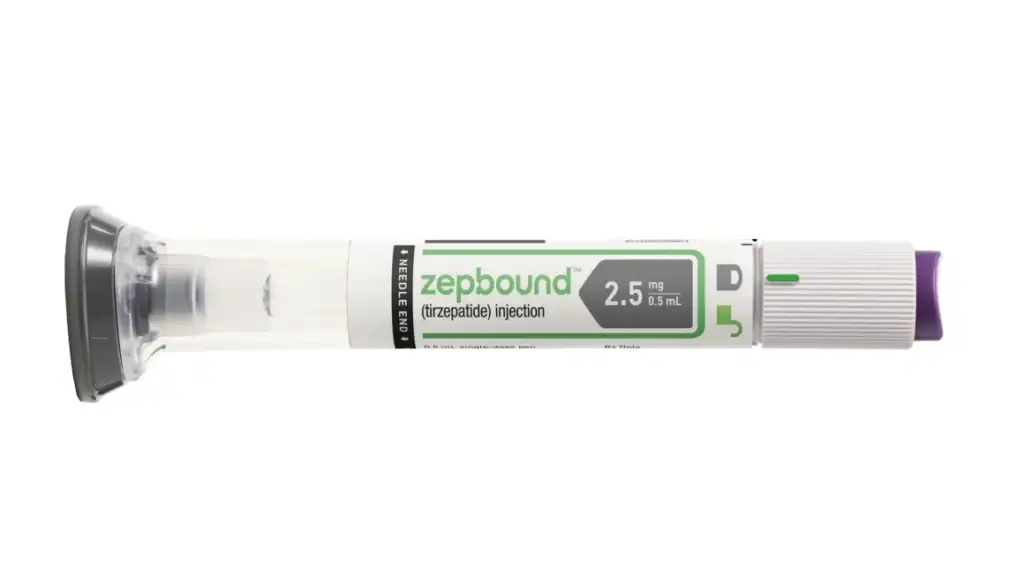The weight loss drug Zepbound also seems to help with sleep apnea, according to drugmaker Eli Lilly. Eli Lilly and CompanyCNN —
Zepbound, a popular weight loss drug, also seems to help people with obstructive sleep apnea, drugmaker Eli Lilly said Wednesday.
Based on results from trials in people with sleep apnea, the company said it plans to submit the material to the US Food and Drug Administration to potentially expand the use of Zepbound for obstructive sleep apnea.
Obstructive sleep apnea is a disorder that causes people to briefly stop breathing while they are sleeping, sometimes several times an hour. This condition can keep a person from feeling fully rested because their brain wakes them up when the body senses that they are no longer breathing. The disorder can also make people much more prone to developing other serious health problems such as coronary heart disease, heart failure and stroke. The World Health Organization estimates about 100 million people have this disorder globally.
While people are more at risk for obstructive sleep apnea as they get older, it often develops when people gain weight and have overweight or obesity. Fat deposits around the upper airway will end up obstructing it, which stops their normal breathing. Earlier studies have shown that when people lose weight, it can help improve their sleep apnea.
The US Food and Drug Administration approved Zepbound to treat obesity in November. The drug contains the active ingredient tirzepatide, which originally approved in 2022 to treat type 2 diabetes under the name Mounjaro. Some doctors have been prescribing the weekly injection off label to people with obstructive sleep apnea, and Lilly has been testing the drug for obstructive sleep apnea since June 2022.
The company released preliminary results of the studies on Wednesday that showed adult patients with obesity and obstructive sleep apnea who were treated with the drug saw an improvement in their sleep apnea when compared with adults who did not receive the drug. The trial enrolled more than 400 people.
“We were delighted to see this really large effect that, to my knowledge, is the largest effect ever seen in this disease,” Dr. Daniel Skovronsky, Eli Lilly’s chief scientific officer, told CNN in a telephone interview.
One study looked at the effect of the drug on people who were both unwilling or unable to use positive airway pressure (PAP) therapy, a machine that will pump pressurized air into a person’s airway to keep it open and prevent breathing problems while they sleep. People who use the machine must wear a mask or use a nosepiece and some people find it difficult to sleep with the device. The other study looked at a group who used or planned to continue to use the PAP machine.
The late-stage trials showed that people had fewer breathing events while they were sleeping when they were on the drug, compared with those that didn’t get the drug. There only seemed to be a slight difference between those who were using PAP therapy.
Those who took the drug in this part of the study also lost weight. They saw a more than 18% mean body weight reduction from when they first started the trial. Those who were on a placebo lost 1.3%, the company said.
At a year, those with moderate-to-severe obstructive sleep apnea who were taking the medication and not using PAP therapy saw a reduction of 27.4 events per hour, compared with a reduction of 4.8 events per hour in the participants who got the placebo.
In the second study, researchers found that people who used or planned to use PAP therapy and took the drug saw a slightly larger reduction in the number of events they had while they were sleeping. At 52 weeks, those who took the drug saw an average reduction of 30.4 events per hour compared with an average reduction of six events per hour in people who got a placebo. In the second study, people on the drug saw a weight reduction of 20.1% from their baseline compared with 2.3% among those taking the placebo.
“We didn’t really know how well it would work in this particular type of abnormality, whether it would be really good at clearing the fat around the airway, or maybe that lags behind the subcutaneous fat that we’ve normally focused on,” Skovronsky said.
He noted his team sees treating sleep apnea in this way not as “a symptomatic therapy like CPAP, which opens up the airways,” but instead potentially “removing natural causes of sleep apnea in these patients, which is great news.”
The results have not yet been peer-reviewed or published in a medical journal. Eli Lilly told CNN that it is still evaluating the results and will share details at a meeting of the American Diabetes Association in June.
CNN’s Meg Tirrell and Amanda Sealy contributed to this report.
Resources:

